During this trip, Gates met with Korean biopharma companies including SK bioscience and LG Chem at a meeting hosted by the International Health R&D Fund (the RIGHT Fund). Conspicuously absent was GC Pharma, widely regarded as Korea’s leading vaccine developer.
According to industry sources, the Gates Foundation and RIGHT Fund held the meeting on August 20 in Yeouido, Seoul, with member companies SK bioscience, LG Chem, and EuBiologics. The session focused on updates in vaccine, therapeutic, and diagnostic R&D.
The RIGHT Fund, jointly financed by Korea’s Ministry of Health and Welfare and the Gates Foundation, supports research projects that target diseases imposing heavy burdens on low- and middle-income countries. It also helps connect global health institutions with Korean companies.
Industry attention has turned to GC Pharma’s absence. The explanation is simple: GC Pharma is not a member of the RIGHT Fund. GC Pharma official commented, “The RIGHT Fund does not directly align with our business, so we did not participate.”
Instead, GC Pharma is affiliated with Gavi, the Vaccine Alliance, which has strong backing from the Gates Foundation. Established at the World Economic Forum in 2000 under Gates’s leadership, Gavi now partners with the WHO, UNICEF, the World Bank, and the Gates Foundation.
Since its launch, Gavi has provided vaccines to 1.1 billion people. Over the same period, global under-five mortality has fallen from about 10 million in 2000 to under 5 million in 2023. Through Gavi, the Gates Foundation aims to reduce vaccine costs and expand access worldwide.
Roughly 11% of Gavi’s vaccine supply comes from Korean manufacturers, including SK bioscience, LG Chem, EuBiologics, and GC Pharma. The Gates Foundation’s Korea visit was seen as an effort to strengthen this supply base.
The push comes as the U.S. government halts its funding to Gavi. In June, U.S. Health and Human Services Secretary Kennedy said the diphtheria–tetanus–pertussis (DTP) vaccine could raise child mortality risks.
Gavi responded that in regions with poor healthcare access and high infection risk, the protective benefits far outweigh temporary adverse effects. Washington has yet to signal a reversal of its decision.
For Korean firms, joining Gavi is attractive because it provides not only development and clinical support from the Gates Foundation but also access to broader global distribution networks.
An SK bioscience official noted, “As a latecomer in global markets, our distribution network is still insufficient. Support helps us expand product use, which is a major advantage.” The official added, “Support from the Gates Foundation at the development and clinical stages is feeding into broader distribution, which, in turn, connects to additional support—forming a virtuous cycle.”
Yang Hyunwoo (yhw@fntimes.com)




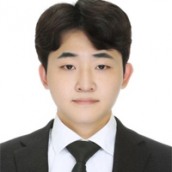





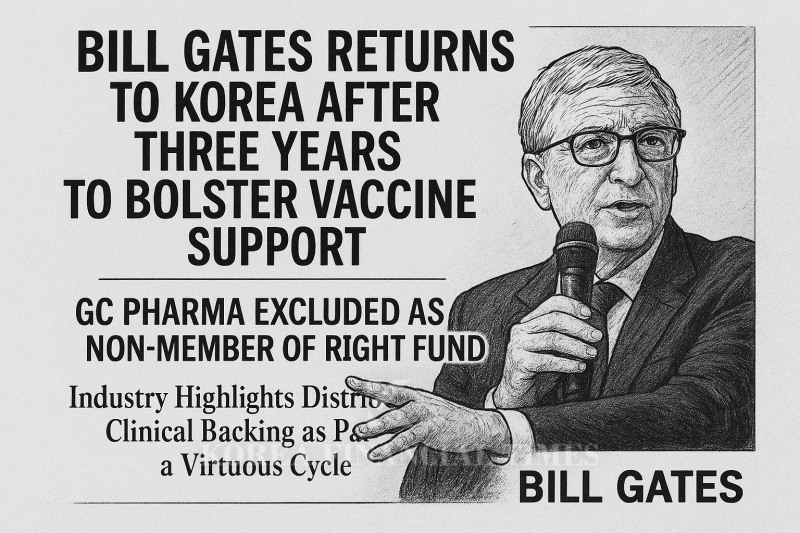
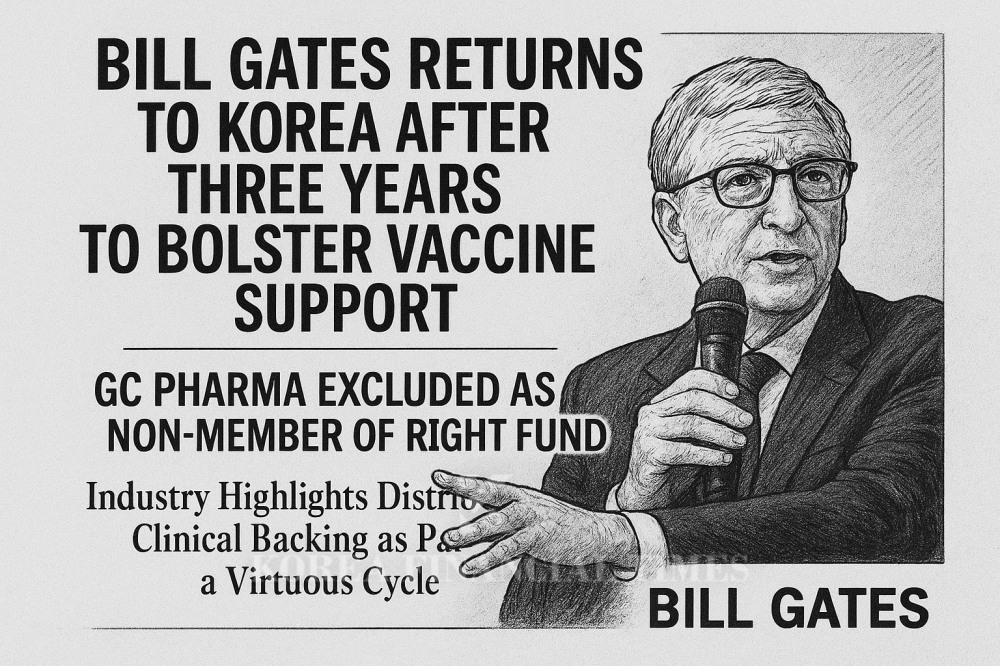






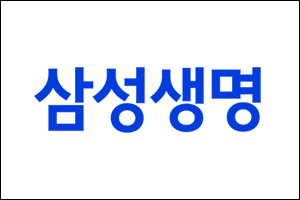




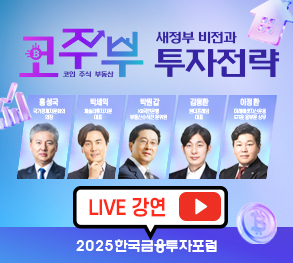





![코스피 6300인데···KB금융, 12거래일 연속 외인 '순매도' 이유는 [금융지주 밸류업 점검]](https://cfnimage.commutil.kr/phpwas/restmb_setimgmake.php?pp=006&w=69&h=45&m=5&simg=2026022621383900871b4a7c6999c121131189150.jpg&nmt=18)


![[속보] KAI 노조 "오늘 사장추천위 열린다"...사측 "확인 못해"](https://cfnimage.commutil.kr/phpwas/restmb_setimgmake.php?pp=006&w=69&h=45&m=5&simg=20260227135534054450d260cda7511817679169.jpg&nmt=18)

!['국장 ETF' 힘으로 코스피 상승…삼성운용 질주 [ETF 통신]](https://cfnimage.commutil.kr/phpwas/restmb_setimgmake.php?pp=006&w=69&h=45&m=5&simg=2026022608395305907179ad4390712813480118.jpg&nmt=18)
!['연임 특별결의' 도입 미룬 KB금융···'선제 조치' 타이틀 잡을 곳은 [2026 주총 미리보기]](https://cfnimage.commutil.kr/phpwas/restmb_setimgmake.php?pp=006&w=69&h=45&m=5&simg=2026022519321609304b4a7c6999c121131189150.jpg&nmt=18)












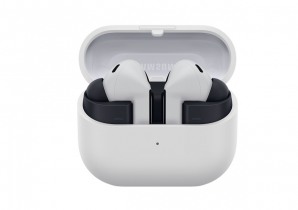
![[그래픽 뉴스] “돈로주의 & 먼로주의: 미국 외교정책이 경제·안보에 미치는 영향”](https://cfnimage.commutil.kr/phpwas/restmb_setimgmake.php?pp=006&w=298&h=298&m=1&simg=202602261105472649de68fcbb3512411124362_0.jpg&nmt=18)
![[그래픽 뉴스] 워킹맘이 바꾼 금융생활](https://cfnimage.commutil.kr/phpwas/restmb_setimgmake.php?pp=006&w=298&h=298&m=1&simg=202602021638156443de68fcbb3512411124362_0.jpg&nmt=18)
![[그래픽 뉴스] 매파·비둘기부터 올빼미·오리까지, 통화정책 성향 읽는 법](https://cfnimage.commutil.kr/phpwas/restmb_setimgmake.php?pp=006&w=298&h=298&m=1&simg=2026022714105702425de68fcbb3512411124362.jpg&nmt=18)
![[그래픽 뉴스] 하이퍼 인플레이션, 왜 월급이 종잇조각이 될까?](https://cfnimage.commutil.kr/phpwas/restmb_setimgmake.php?pp=006&w=298&h=298&m=1&simg=202601141153149784de68fcbb3512411124362_0.jpg&nmt=18)
![[그래픽 뉴스] 주식·채권·코인까지 다 오른다, 에브리싱 랠리란 무엇일까?](https://cfnimage.commutil.kr/phpwas/restmb_setimgmake.php?pp=006&w=298&h=298&m=1&simg=2026022714100604994de68fcbb3512411124362.jpg&nmt=18)
![[신간] 고수의 M&A 바이블](https://cfnimage.commutil.kr/phpwas/restmb_setimgmake.php?pp=006&w=81&h=123&m=5&simg=2025091008414900330f8caa4a5ce12411124362.jpg&nmt=18)
![[신간] 리빌딩 코리아 - 피크 코리아 극복을 위한 생산성 주도 성장 전략](https://cfnimage.commutil.kr/phpwas/restmb_setimgmake.php?pp=006&w=81&h=123&m=5&simg=2025032814555807705f8caa4a5ce12411124362.jpg&nmt=18)
![[서평] 추세 매매의 대가들...추세추종 투자전략의 대가 14인 인터뷰](https://cfnimage.commutil.kr/phpwas/restmb_setimgmake.php?pp=006&w=81&h=123&m=5&simg=2023102410444004986c1c16452b0175114235199.jpg&nmt=18)


![[신간] 이게 화낼 일인가?](https://cfnimage.commutil.kr/phpwas/restmb_setimgmake.php?pp=006&w=81&h=123&m=5&simg=2026010610254801367f8caa4a5ce12411124362.jpg&nmt=18)

![[AD] 현대차, 글로벌 안전평가 최고등급 달성 기념 EV 특별 프로모션](https://cfnimage.commutil.kr/phpwas/restmb_setimgmake.php?pp=006&w=89&h=45&m=1&simg=20260106160647050337492587736121125197123.jpg&nmt=18)
![[AD] 현대차 ‘모베드’, CES 2026 로보틱스 부문 최고혁신상 수상](https://cfnimage.commutil.kr/phpwas/restmb_setimgmake.php?pp=006&w=89&h=45&m=1&simg=20260105103413003717492587736121125197123.jpg&nmt=18)
![[AD] 기아 ‘PV5’, 최대 적재중량 1회 충전 693km 주행 기네스 신기록](https://cfnimage.commutil.kr/phpwas/restmb_setimgmake.php?pp=006&w=89&h=45&m=1&simg=20251105115215067287492587736121125197123.jpg&nmt=18)
![[카드뉴스] KT&G, 제조 부문 명장 선발, 기술 리더 중심 본원적 경쟁력 강화](https://cfnimage.commutil.kr/phpwas/restmb_setimgmake.php?pp=006&w=89&h=45&m=1&simg=202509241142445913de68fcbb3512411124362_0.png&nmt=18)
![[AD]‘황금연휴에 즐기세요’ 기아, ‘미리 추석 페스타’ 이벤트 실시](https://cfnimage.commutil.kr/phpwas/restmb_setimgmake.php?pp=006&w=89&h=45&m=1&simg=20250903093618029117492587736121166140186.jpg&nmt=18)



